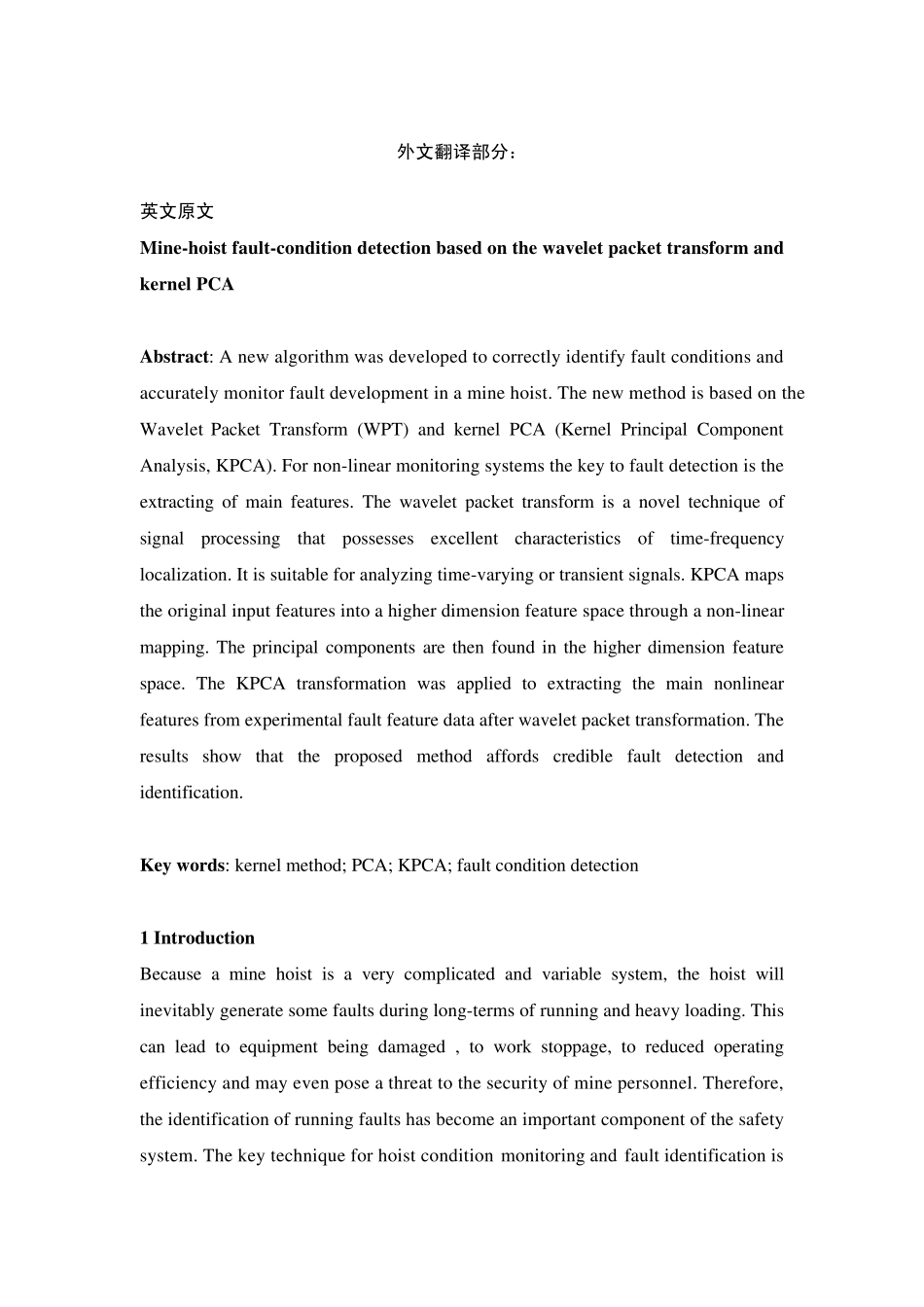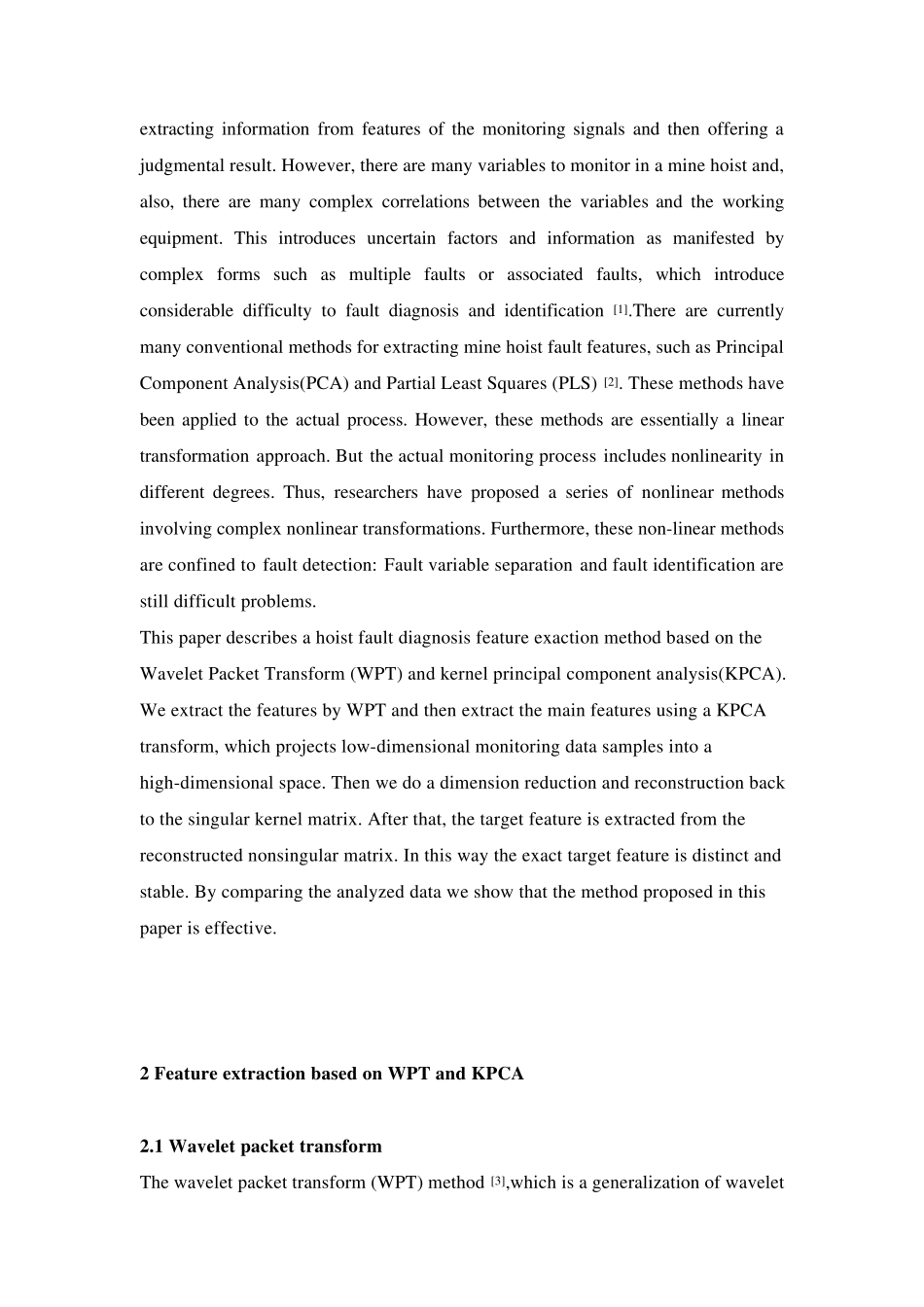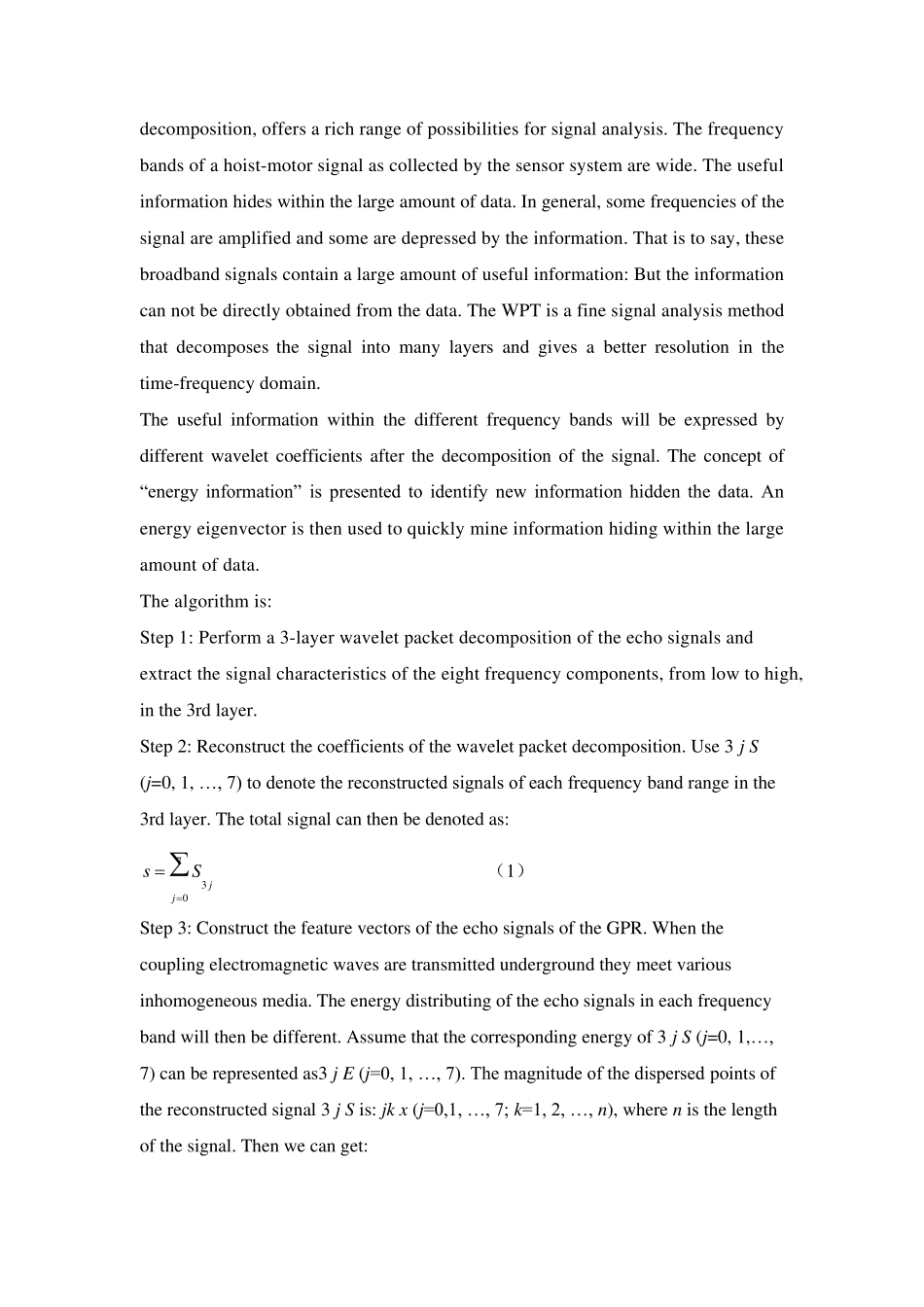外文翻译部分: 英文原文 Mine-hoist fault-condition detection based on the wavelet packet transform and kernel PCA Abstract: A new algorithm was developed to correctly identify fault conditions and accurately monitor fault development in a mine hoist. The new method is based on the Wavelet Packet Transform (WPT) and kernel PCA (Kernel Principal Component Analysis, KPCA). For non-linear monitoring systems the key to fault detection is the extracting of main features. The wavelet packet transform is a novel technique of signal processing that possesses excellent characteristics of time-frequency localization. It is suitable for analyzing time-varying or transient signals. KPCA maps the original input features into a higher dimension feature space through a non-linear mapping. The principal components are then found in the higher dimension feature space. The KPCA transformation was applied to extracting the main nonlinear features from experimental fault feature data after wavelet packet transformation. The results show that the proposed method affords credible fault detection and identification. Key words: kernel method; PCA; KPCA; fault condition detection 1 Introduction Because a mine hoist is a very complicated and variable system, the hoist will inevitably generate some faults during long-terms of running and heavy loading. This can lead to equipment being damaged , to work stoppage, to reduced operating efficiency and may even pose a threat to the security of mine personnel. Therefore, the identification of running faults has become an important component of the safety system. The key technique for hoist condition monitoring and fault identification is extracting information from features of the monitoring signals...


